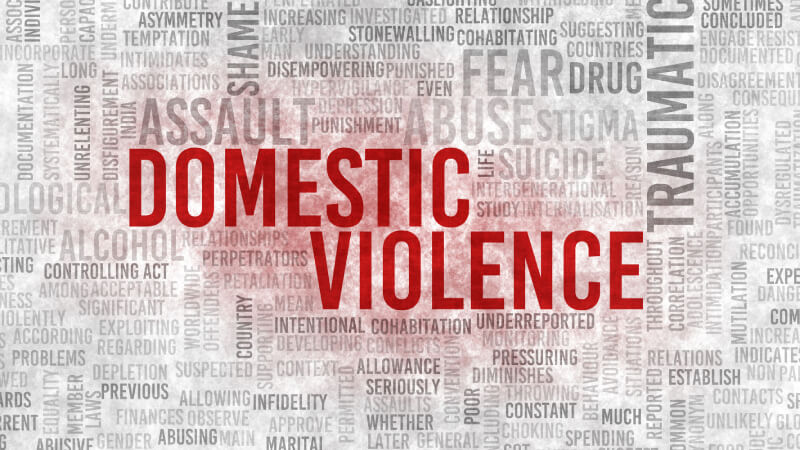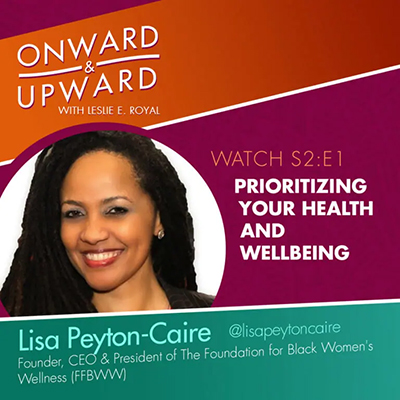Shedding Light on the Shadows:
Exploring the Causes and Solutions to Intimate Partner (Domestic) Violence
- What is an abusive relationship?
- How common is intimate partner violence?
- Why do they abuse?
- What kind of harm could I have from intimate partner violence?
- Signs of an abusive relationship?
- Am I in an abusive relationship?
- Is mental abuse as harmful as physical abuse?
- How do I get help for an abusive relationship?
Key Takeaways
- In the United States, 25% of women and 10% of men report experiencing physical/sexual violence or stalking by an intimate partner during their life.
- About 25% of people in the US report psychological aggression or mental abuse by an intimate partner.
- IPV can occur at any age, including teenagers and seniors.
- IPV affects all sexes, genders, races, and ethnic groups. It also affects people of all religions, careers, education, and income levels.
- About 35% of women and more than 10% of men who are IPV survivors have reported physical injury.
- In the United States, 20% of all homicides are because of IPV.
- A current or former male intimate partner murders more than 50% of all women killed in the United States.
- You don’t have to be harmed to be in an abusive relationship or a victim of IPV.
- Making threats to harm a person is a type of violence by itself.
What is an abusive relationship?
You may have heard of domestic violence, intimate partner violence (IPV), or abusive relationships. While there are some slight differences in what these terms mean, they are all describing the same thing.
The word “abuse” can be stigmatizing. The word may cause someone to feel shame for something that is not their fault. Therefore, in this article, we will mainly use the term “intimate partner violence” or IPV to avoid that stigma.
So, what is IPV? IPV or intimate partner violence is when you experience physical or sexual violence, stalking, or psychological aggression by an intimate partner, who can be a former or current partner. An intimate partner is a romantic partner of any gender. It includes spouses and dating partners. IPV can be a single episode or a long-term recurrence.
Next, let’s talk about the different types of IPV:
- Physical violence is when someone tries to hurt you physically. This includes hitting, kicking, choking, and pushing.
- Sexual violence is when someone tries to force you to take part in a sex act when you do not or cannot consent. This includes not only sexual intercourse but any type of sexual touching and even sexting. You cannot consent to a sex act if you are unconscious. You also may not be able to consent if you are affected by drugs or alcohol.
- Stalking is repeated unwanted contact and attention that causes you to fear for your safety.
- Psychological aggression is also known as mental abuse. This is when someone uses words to try to hurt you mentally or emotionally or to try to control you. This can include manipulating, publicly humiliating, or making you feel bad about yourself.
The common theme behind IPV is that they are all ways your partner tries to control you or gain power over you.
How common is Intimate Partner Violence?
Very. In the United States (US), 25% of women and 10% of men report experiencing physical or sexual violence or stalking by an intimate partner at some point during their life. Twenty-five percent of people in the US report psychological aggression or mental abuse by an intimate partner. The number of men who report experiencing psychological aggression is almost as high as it is for women.
IPV can occur at any age, including teenagers and seniors. It affects all sexes, genders, races, and ethnic groups. It also affects people of all religions, careers, education, and income levels.
Why Do They Abuse?
None of these should be considered excuses for IPV. It is essential to realize that no factors related to the victim are listed here. IPV is not the victim’s fault.
The risk factors vary from person to person. Listed below are some of the things that can be involved.
- financial stress
- low self-esteem
- heavy alcohol or drug use
- poor problem-solving skills
- social isolation, such as having few friends
- belief in strict gender roles, such as male dominance
- history of physical or emotional abuse in childhood
- history of depression or suicide attempts
- desire for power or control
- relationship issues such as jealousy, separation, divorce
- witnessing IPV involving your parents
What kind of harm could I have from intimate partner violence?
IPV can cause immediate injuries and ongoing physical and mental health problems. In addition, your children can be at risk for physical and mental harm.
Many aspects of the lives of IPV survivors may be negatively affected in the long term.
About 35% of women and more than 10% of men who are IPV survivors have reported physical injury.
The most common physical injuries include bruises, cuts, and scrapes. Less common physical injuries include loss of consciousness or passing out. This can be from being punched in the head, knocked down and hitting your head on the ground, or choking. All types of physical injury can occur with IPV.
Death is the most severe type of physical injury and, unfortunately, is not rare.
In the United States, 20% of all homicides are because of IPV. The statistics are particularly staggering for women: more than 50% of all women killed in the United States are killed by a current or former male intimate partner.
Chronic health problems in IPV survivors are numerous and depend on the type of trauma experienced. Some of these problems are from direct injuries, while others are from the body’s reaction to chronic stress.
Some Health Problems of IPV survivors include the following:
- chronic headaches
- sleeping problems
- chronic abdominal or pelvic pain
- problems with sexual function
- irritable bowel syndrome (IBS)
- post-traumatic stress disorder (PTSD)
- depression or anxiety
- suicide
In addition, your children are at increased risk for physical, sexual, and emotional violence from your partner if you are experiencing IPV.
Children who witness IPV involving a parent are at increased risk for anxiety, depression, PTSD, school problems, and substance abuse.
Pregnancy outcomes can include injury to the baby in the womb, preterm labor and birth, and low birth weight.
Finally, the effects of IPV can carry over into other parts of your life. It is not uncommon for survivors of IPV to have financial problems and be at increased risk for homelessness, smoking, binge alcohol drinking, and risky sexual behavior.
Signs of an abusive relationship
- Hitting, Kicking, Shoving, Choking, or pushing.
- Being forced or coerced to perform sex acts.
- Sex acts performed on your body without your consent (including when you are unconscious or under the influence of drugs or alcohol).
- Repeated and unwanted attention that causes you to fear for your safety.
- Repeated insults, put-downs, manipulation, or public humiliation.
Below are more specific examples of what you might experience in an abusive relationship.
Physical Violence
Any physical contact that can hurt you is a type of physical violence and strong sign of IPV. Even if you think there is a reasonable excuse for a single, seemingly minor episode, any repeated episode of physical violence, even minor, is a strong sign of IPV.
Also, any physical contact that leads to an injury or involves a weapon being present (even if the weapon is not used) is a strong sign of IPV.
It’s important to remember that you don’t have to be harmed to be in an abusive relationship or a victim of IPV. Making threats to harm a person is a type of violence by itself. If a threat makes you afraid for your safety, that is a type of violence.
Examples of physical violence include:
- hitting
- punching
- kicking
- throwing things, even if they do not hit you
- pushing or shoving
- biting
- slapping
- choking
- threatening with a weapon
Sexual Violence
You are the only one who should decide what types of sexual behavior you do or do not participate in. If anyone forces you to do something sexual that you do not want to do, that is sexual violence.
Even if you agree to have sex with them, you can still let them know if there are limits and boundaries in your participation. For example, if they want to restrain you and you decline, if they force you to do it anyway, they have committed sexual violence against you.
You also have the right to control your reproduction. This means that you are the one who should be making decisions about whether or not you get pregnant and how you proceed with any pregnancy that does occur. This does not mean that you shouldn’t involve your partner in these discussions, but it means they should not force any choices upon you.
Examples of signs of IPV in this area include:
- refusing to wear a condom when you ask a male partner to do so
- removing a condom when you aren’t looking
- hiding your birth control pills to try to get you pregnant
- trying to make you miscarry by hitting you in the abdomen or by other means
- preventing you from getting an abortion if you have decided you want one
- forcing you to have an abortion when you do not want one
Psychological or Emotional Aggression (also known as mental abuse)
This is probably where it can be the most difficult for people to identify that they are in an abusive relationship.
Every relationship is different, as is every person’s personality. Just because your partner calls you a name once doesn’t mean they are abusive. However, patterns matter. When you look at the following list of behaviors, look at how often they happen and how many are occurring in your relationship. The more behaviors you notice, the more likely you are to have mental IPV.
- name-calling and insults
- purposefully humiliating you in public
- limiting your access to money
- limiting your ability to use a car
- preventing you from leaving the house
- discouraging you from seeing your friends or family
- blaming you for their outbursts
- monitoring your cell phone, email, or social media without your permission
- choosing what you wear
- threatening to hurt your children or pets
- threatening to hurt themselves because of being upset at you
- threatening to report you to the police for things you haven’t done
- saying that if they can’t have you, no one can
- taking your money
- destroying your things
Am I in an abusive relationship?
If what you are reading reminds you of your relationship, you may be in an abusive relationship.
There is no test to tell you if your relationship is abusive. But, if your partner is hurting you physically or emotionally, you need to strongly consider that you are a victim of IPV.
A few common misunderstandings are worth discussing here.
- Just because the abuse is “minor” does not mean it is not abuse. Violent behavior can get worse over time. Pushing and grabbing, without really hurting you much, is not okay. It is still IPV, and you are better off recognizing it when it seems “minor” rather than when it gets more serious later.
- Just because the abuse has only been once or twice does not mean that it is not abuse. If you have experienced even infrequent violence (whether mental or physical) in your relationship, the chances are high that you will again at some point.
- Just because the violence (mental or physical) stops when you do everything your partner wants does not mean it is not IPV. This does not mean that you “asked for” the abuse. IPV is about control, which is what your partner achieves with their abusive behavior. Again, this situation is where you may find the abuse starting again later.

Doctors sometimes use the following quiz to screen for IPV:
Answer Yes or No for each question.
- Within the last year, have you been humiliated or emotionally abused in other ways by your partner or your ex-partner?
- Have you been afraid of your partner or ex-partner in the last year?
- Within the last year, have you been raped or forced to have any kind of sexual activity by your partner or ex-partner?
- Within the last year, have you been kicked, hit, slapped, or otherwise physically hurt by your partner or ex-partner?
Score 1 point for each yes answer. Total scores will be between 0-4.
A score of 1 or higher:
There is a high likelihood that you have experienced IPV in your relationship.
A score of zero:
If you score 0 and have no concerns about hurtful behaviors in your relationship, you are not likely to be in an abusive relationship.
However, if there are some things in your relationship that you are concerned about, even if you score 0 on this quiz, you could still be a victim of IPV. This quiz does not cover every possible type of IPV.
Every relationship is different, and a short quiz cannot cover every circumstance. Also, some people who have experienced violence for much of their lives can find it difficult to see that what is happening to them is IPV. You may be de-sensitized or so used to that behavior that it seems almost “normal.”
It is common for victims to blame themselves, which can include minimizing what the abusive partner is doing.
Is mental abuse as harmful as physical abuse?
One type of abuse is not better than another. Physical abuse looks worse because you can often see the injury.
Physical abuse has a higher risk of death, but any abuse can increase the risk of depression and suicide.
Different types of abuse can leave various kinds of scars, some of which may be visible and others not. Those “internal scars” from emotional or mental abuse can be deep and challenging to heal, leading to chronic mental and physical health problems.
It is not uncommon for victims to have more difficulty standing up for themselves when it is “only mental abuse.” It may seem more challenging to explain to others what is happening to you, easier to blame yourself, and harder to ask for help. However, it is not true that mental abuse is less important than physical abuse.
How do I get help for an abusive relationship?
This article focuses on the dynamics and common causes of intimate partner violence. Read Breaking the Silence and Rebuilding Lives: Resources and Support for Survivors of Intimate Partner (Domestic) Violence for what to do if you or someone you know may be experiencing IPV.
Here are two important resources you should know about (within the US):
-
- Call 911. If you need urgent or immediate assistance because you are being injured, you witness someone else being injured, or you are afraid you might be injured, call 911. That is the quickest way to get help and get you to safety.
- Call the National Domestic Violence Hotline at 800-799-SAFE(7233). This is available for the hearing impaired via TTY 800-787-3224. You can also text “START” to 88788. This call is free, confidential, and available 24/7. You will talk to an advocate who will listen to your concerns about your relationship without judgment. They will also help you figure out what is best for your situation. They can provide you with helpful local resources.
Read Breaking the Silence and Rebuilding Lives: Resources and Support for Survivors of Intimate Partner (Domestic) Violence for what to do if you or someone you know may be experiencing IPV.
Written by: myObMD writing team | Editor: Jennifer Abayowa and Dayna Smith, MD| Reviewed: January 8, 2024 | Copyright myObMD, Inc 2024.
References
- Violence prevention: Intimate partner violence. Centers for Disease Control and Prevention. https://www.cdc.gov/violenceprevention/intimatepartnerviolence/riskprotectivefactors.html. Accessed February 10, 2022.
- Dicola D, Spaar E. Intimate Partner Violence. Am Fam Physician. 2016 Oct 15;94(8):646-651. PMID: 27929227. Available at: https://www.aafp.org/afp/2016/1015/p646.html.
- Sohal H, Eldridge S, Feder G. The sensitivity and specificity of four questions (HARK) to identify intimate partner violence: a diagnostic accuracy study in general practice. BMC Fam Pract 8, 49 (2007). Available at: https://doi.org/10.1186/1471-2296-8-49.
- Violence prevention: Fast facts. Centers for Disease Control and Prevention. https://www.cdc.gov/violenceprevention/intimatepartnerviolence/fastfact.html. Accessed February 14, 2022.
- Domestic or intimate partner violence. Office on Women’s Health, US Department of Health and Human Services. https://www.womenshealth.gov/relationships-and-safety/domestic-violence/signs-domestic-violence. Updated June 7, 2018. Accessed on February 24, 2022.
- Wathen CN, MacMillan HL. Children’s exposure to intimate partner violence: Impacts and interventions. Paediatr Child Health. 2013 Oct; 18(8): 419–422. Available at: https://www.ncbi.nlm.nih.gov/pmc/articles/PMC3887080/.
- Capaldi DM, Shortt JW, Kim HK, Wilson J, Crosby L, Tucci S. Official incidents of domestic violence: Types, injury, and associations with nonofficial couple aggression. Violence Vict. 2009; 24(4): 502–519. Available at: https://www.ncbi.nlm.nih.gov/pmc/articles/PMC2779018/#!po=74.0385.
- The National Domestic Violence Hotline. Thehotline.org. Accessed February 24, 2022.
Exploring the Causes and Solutions to Intimate Partner (Domestic) Violence



